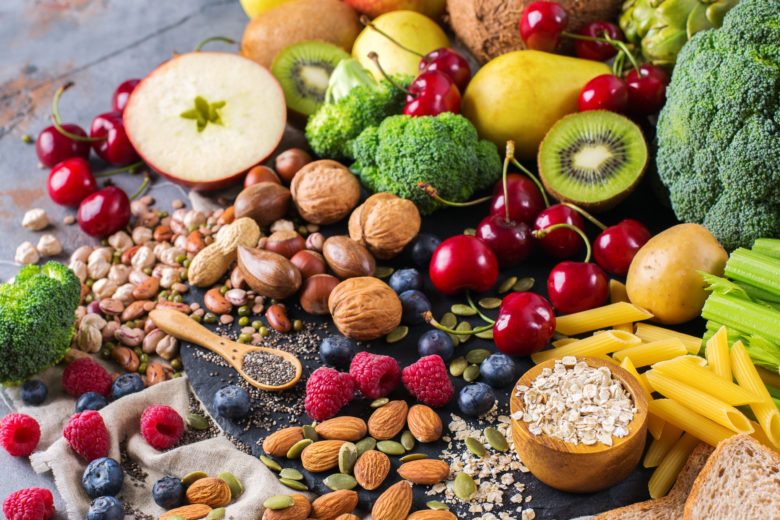
From Meatless Monday to consumer questions about vegetarianism for children, general health or medical conditions, and an ever-increasing rate of veggie-based foods on menus at restaurants, hospitals and facilities, dietitians need to feel comfortable working with this type of cuisine. Whether already committed or veggie-curious, join the celebration of Vegetarian Awareness Month, which kicked off with World Vegetarian Day on October 1st, and ends with World Vegan Day on November 1st of each year.
Reasons to celebrate Vegetarian Awareness Month, even for non-vegetarians
Taste! Vegetarian meals are delicious, fast and easy. Meatless food is far from boring; experimenting with antioxidant-rich herbs, spices and sauces for flavor can be fun for chefs and families alike.
Meatless Monday has gained national and worldwide attention. Your facility may ask you to help institute this practice into its menu plan. Gaining knowledge about meatless meals can help save money and time and increase dietary micronutrients and fiber for your clients or coworkers.
Save money. Studies show that plant-based dietary patterns could cost less money. Animal protein has been assessed as more expensive than plant-based foods. An additional savings could come from the many health benefits of plant-based diets and reducing money spent on medical care.
Vegetarian diets are statistically higher in fiber. Though 25-34 grams of fiber per day is recommended, the typical American consumes only 12-15 grams. Increasing whole grains, legumes and fresh produce can easily help achieve the goal. For example, a pound of beef contains zero grams of fiber, but just one cup of lentils has 16 grams.
A love of animals — in the U.S., billions of animals are slaughtered for human consumption each year. Help protect animals by going vegetarian during October.
Respect for the environment and sustainability. From water protection to soil and air quality, raising animals uses more natural resources than growing plants. Studies show that plant-based diets are more environmentally sustainable than those rich in animal foods.
Health! Studies show that vegetarian diets are statistically higher in vitamins A, B2, C and E, beta carotene, calcium and folate than non-vegetarian diets. There is also recent research that indicates vegetarians experience a significantly lower overall incidence of cancer and a lower cholesterol and blood pressure than non-vegetarians. This dietary pattern is linked to reduced risk of ischemic heart disease and type 2 diabetes as well.
Additional resources to help dietitians and their clients incorporate a vegetarian lifestyle:
Academy of Nutrition and Dietetics, Vegetarian and Special Diets
Fruits and Veggies For Better Health
Happy Cow (for finding vegetarian and vegan restaurants)





